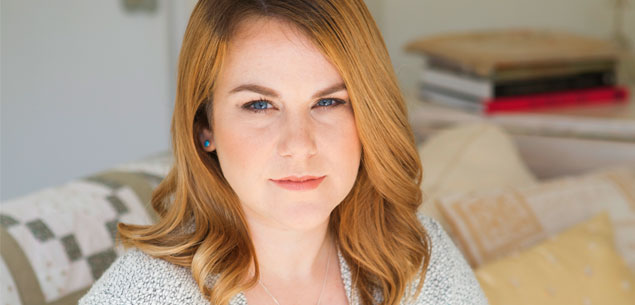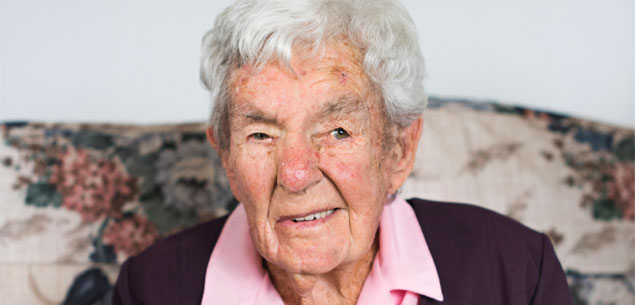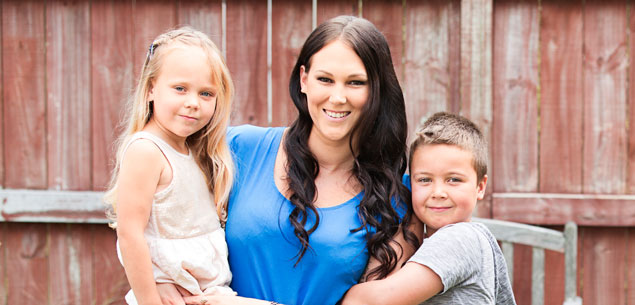It was the thought of home, and embracing her loved ones, that gave New Zealander Lucette Dillon hope during the devastating earthquake that has ravaged landlocked Nepal. While her countrymen and women were honouring the fallen on Anzac Day, the 29-year-old was facing her own possible death as the 7.8 magnitude quake struck the capital city, Kathmandu. Bracing herself beneath a door frame on the ground floor of a three-story residential building, Lucette experienced trembling so violent that she was certain it would collapse around her.
“I remember hearing the families who were upstairs screaming in fear. The ceiling looked as though it was going to crumble.”
It’s little under an hour since Lucette safely arrived back in New Zealand and, speaking to the Weekly for an exclusive interview, the young Aucklander is still recovering from her three-day journey home. She hasn’t slept for four days and has shed countless tears, many of which flowed on seeing her mother, Janet, at the arrival gate. Lucette is still so traumatised by her experience, that her body continues to feel as if it is shaking, and she can’t banish the haunting sound of children’s screams.“It’s just a huge weight off my shoulders to be home and safe,” she says.
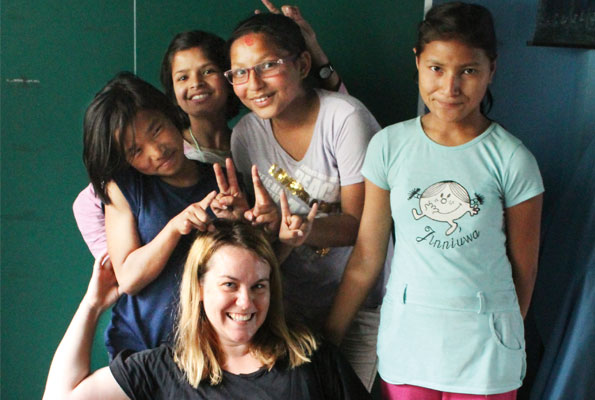
Lucette was working as a volunteer at an orphanage for girls. She was devastated to leave her new friends behind in the aftermath of the disaster.
Lucette had been in Kathmandu for a week before the quake, working as a volunteer at an orphanage for girls. She had previously founded her own charity, The Quan Âm Foundation, to help Vietnamese orphans, eventually resigning from her corporate job to spend a year living in a developing country. Since July, she had been working for World Vision Cambodia and was visiting Kathmandu before returning to New Zealand.
Having made it to a doorway on feeling the tremors begin, Lucette endured a minute of the violent shaking before it finally eased, giving her the opportunity to race outside. “The power lines had fallen down. The streets in Kathmandu are extremely small with tall brick walls on either side. If they were to fall, you could be crushed. There was debris everywhere and so many injured people. I came across a woman with a cracked skull and a little boy with a shattered leg.”
Lucette was able to call her mother on her mobile phone, using the Facetime video application. Although obviously relieved her girl was alive, Janet, who had just returned from an Anzac Day service, was shocked to see the fear in her daughters’ face. “She was very pale. I was scared and worried, like any mother would be,” Janet says.
With rescue workers still on the way, Lucette took refuge as night fell under a corrugated iron shelter, alongside 16 other people. “It wasn’t the safest place,” she tells. “We slept on a small rug. There were about 30 aftershocks during that first night, and when they hit, you could hear the screams throughout the entire city.”
The next morning, Lucette and a group of friends decided to walk to the airport to try and catch a plane out. “That’s when we really saw the devastation first hand. The city was like a warzone – we had to climb over rubble. People were walking around dazed and lost.”
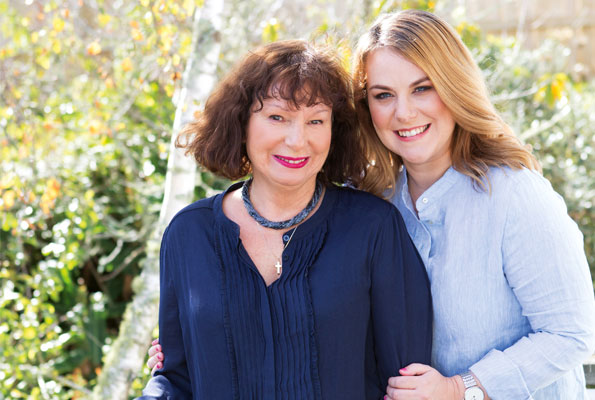
Lucette was overcome with relief on seeing mum Janet on her return to Auckland.
When they arrived at the airport there was more chaos, with thousands of other travellers desperately trying to evacuate. Lucette had been due to fly out the next day, but begged for an early flight. To her surprise, she was given a boarding pass.
“Just before we left, there was a 6.5 magnitude aftershock. Everyone screamed hysterically, and bits of the ceiling were falling down.”
As soon as the plane was in the air, many of the passengers embraced each other, with Lucette remembering, “It felt like we were all in it together.” But on the long journey back to New Zealand, she found the words of a Kathmandu resident and friend ringing in her ears. “She had told me that I was lucky to leave. But Kathmandu was her home, and she couldn’t go anywhere. It made me feel guilty about those we were leaving behind.”
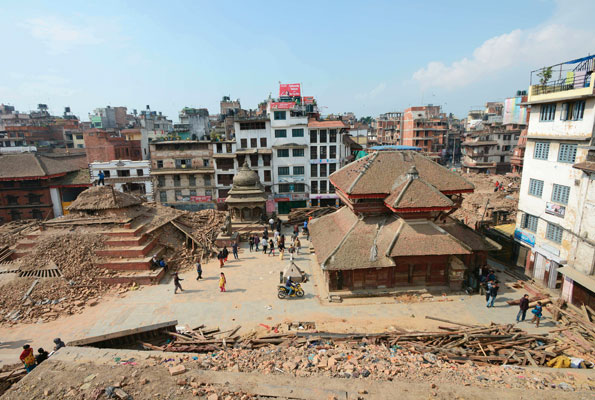
Kathmandu’s central Durbar Square has been all but decimated.
Lucette has been involved with charity work for the past two years, and is familiar with disaster relief plans. She says she felt “disappointed” that aid didn’t get through soon enough after the quake. “It proves how effective and immediate plans need to be implemented in these regions.” Lucette, who lost both a family friend and a close school mate during the Christchurch earthquake, says she now has a better understanding of what its residents went through.
“It was the most terrifying moment in my life, and I will never forget it.”
Lucette suspects that it will take her a very long time to recover. She finds it hard to sleep at night, and any loud sounds scares her. But she’s come to understand how strong the human spirit is and how important her family is to her, including her mother, father Wayne and older sisters Melanie and Emma. “It’s beautiful how during these situations you see people coming together and treating each other with love and compassion.”
How to donate
To donate to the New Zealand Red Cross, visit redcross.org.nz or call 0800 733 276.
To donate to the New Zealand Nepal Society, visit nznepalsociety.co.nz or transfer directly to the account, New Zealand Nepal Society Inc: 01-0142-0053378-00
